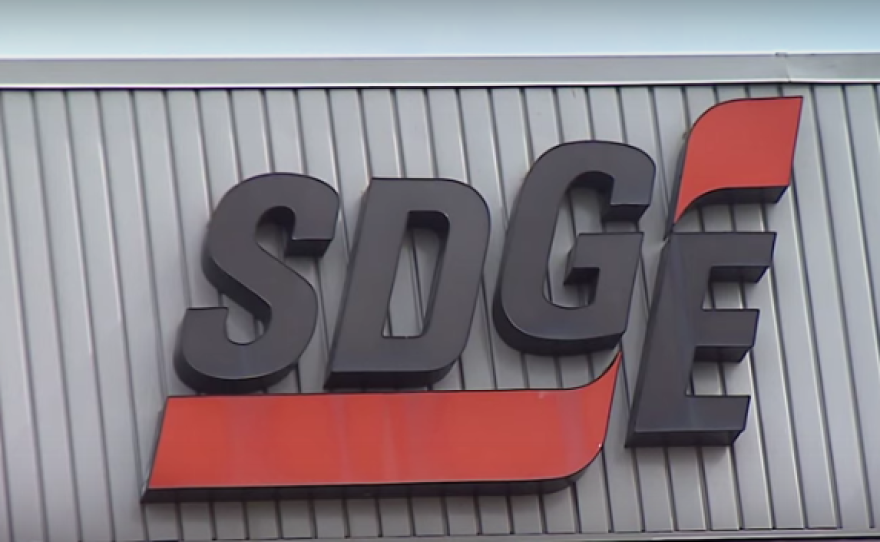There was a heated exchange at a meeting last week of the city of San Diego's Sustainable Energy Advisory Board, which advises the City Council and mayor on energy policies.
An attorney for San Diego Gas & Electric suggested a board member's constitutional rights were being violated because as an employee of the utility he is not allowed to vote, comment or ask questions during the board's discussion of community choice aggregation, an alternative energy program that would take the energy purchasing power away from the utility and give it to the city.
Other board members and people in the audience said SDG&E was attempting to intimidate and bully them by participating in the discussion.
The first thing to understand about the exchange is what community choice aggregation means. Right now, your power comes through SDG&E’s electrical grid. SDG&E buys the electricity from a variety of sources, including natural gas plants, hydroelectric dams and wind turbine farms.
Under community choice aggregation, your power would still go through SDG&E’s grid, but the city would buy the energy, not the utility. The city could transition to community choice aggregation to get more control over where its energy comes from, which would help it reach its goal of getting all energy from renewable sources by 2035.
That goal is spelled out in the city's Climate Action Plan, which the City Council is expected to consider next month.
The next thing to understand is that a state law, Senate Bill 790, prevents utilities from marketing or lobbying against community choice aggregation.
During the Sustainable Energy Advisory Board meeting on Thursday, Deputy City Attorney Fritz Ortlieb explained that the state law means one of the board members, Jerry Butkiewicz, should not vote or comment during discussion of community choice aggregation because he works for SDG&E.
"Can I ask questions during a presentation?" Butkiewicz said.
Ortlieb explained that any kind of communication, including oral communication, falls under the law.
"It depends on the nature of the question, if it contains content that could be seen as influencing," he said. "The safer course would be to abstain."
Then Thomas Brill, special counsel to SDG&E, spoke up from the audience.
"We're dealing with constitutional issues here," he said. He said it could be a violation of Butkiewicz's First Amendment rights to not be allowed to speak or vote on the issue, and that he would contact the San Diego city attorney.
One of the board members, Jay Powell, raised his voice and said Brill should not have been bringing up these issues at the meeting.
"Talk to the city attorney," Powell said.
Brill described himself as a member of the public and said he should be allowed to participate in the discussion.
"We're going to ask the city attorney," he said again.
"Then be quiet," snapped Nicole Capretz, head of the environmental group Climate Action Campaign. She also was also in the audience.
Capretz said later that the meeting was a signal to her that SDG&E will not support community choice aggregation in San Diego, despite the utility's statement on its website that it does.
"They basically revealed that is not their true position, and in fact they are going to be using mostly back channels to stymie the public's opportunity to have an alternative provider," she said. "They were speaking up out of turn at this meeting, making everybody uncomfortable, basically being a bully and intimidating those who were not expecting SDG&E to take such an aggressive position. It caught everybody off guard and changed the dynamic in the room and colored the conversation and made some people nervous and uncomfortable."
As first reported by The San Diego Reader last week, SDG&E paid former City Councilman Tony Young $15,000 to lobby the mayor and members of the City Council on the city's climate action plan.
Sempra Energy, the company that owns SDG&E, spent more than $66,000 lobbying on the climate action plan between April and June, according to lobbyist disclosure reports. Lobbyists met with every council member's office.
At the end of Thursday's meeting, Brill said during public comment that SDG&E is not trying to lobby on community choice aggregation.
"We want to make sure we're in a position where we can provide responses to any questions," he said. "SDG&E wants to make sure we can respond to any questions we get and that any analysis you do is based on accurate information, but we're not interested in lobbying."
He said the utility would resolve the question over whether asking for information is equivalent to lobbying.
Gerry Braun, a spokesman for the City Attorney's Office, said Deputy City Attorney Ortlieb spoke with the representatives from SDG&E after the meeting and would meet with them this week to discuss the First Amendment issue.
For City Attorney Jan Goldsmith to issue a formal opinion, SDG&E would have to make a request to the mayor's office, and then the mayor's office would ask the city attorney, Braun said. As of Friday afternoon, that hadn't happened, he said.
Capretz said she sees SDG&E asking questions about community choice aggregation as "skating a very fine line."
"I think the regulations are pretty clear that they're to avoid participating in discussions that might infer at all that they're trying to intimidate or influence the discussion at the city," she said.
The board had planned to vote at the meeting on whether to recommend the city ask for bids to do an analysis on the cost and feasibility of community choice aggregation but delayed that decision until its next meeting.







